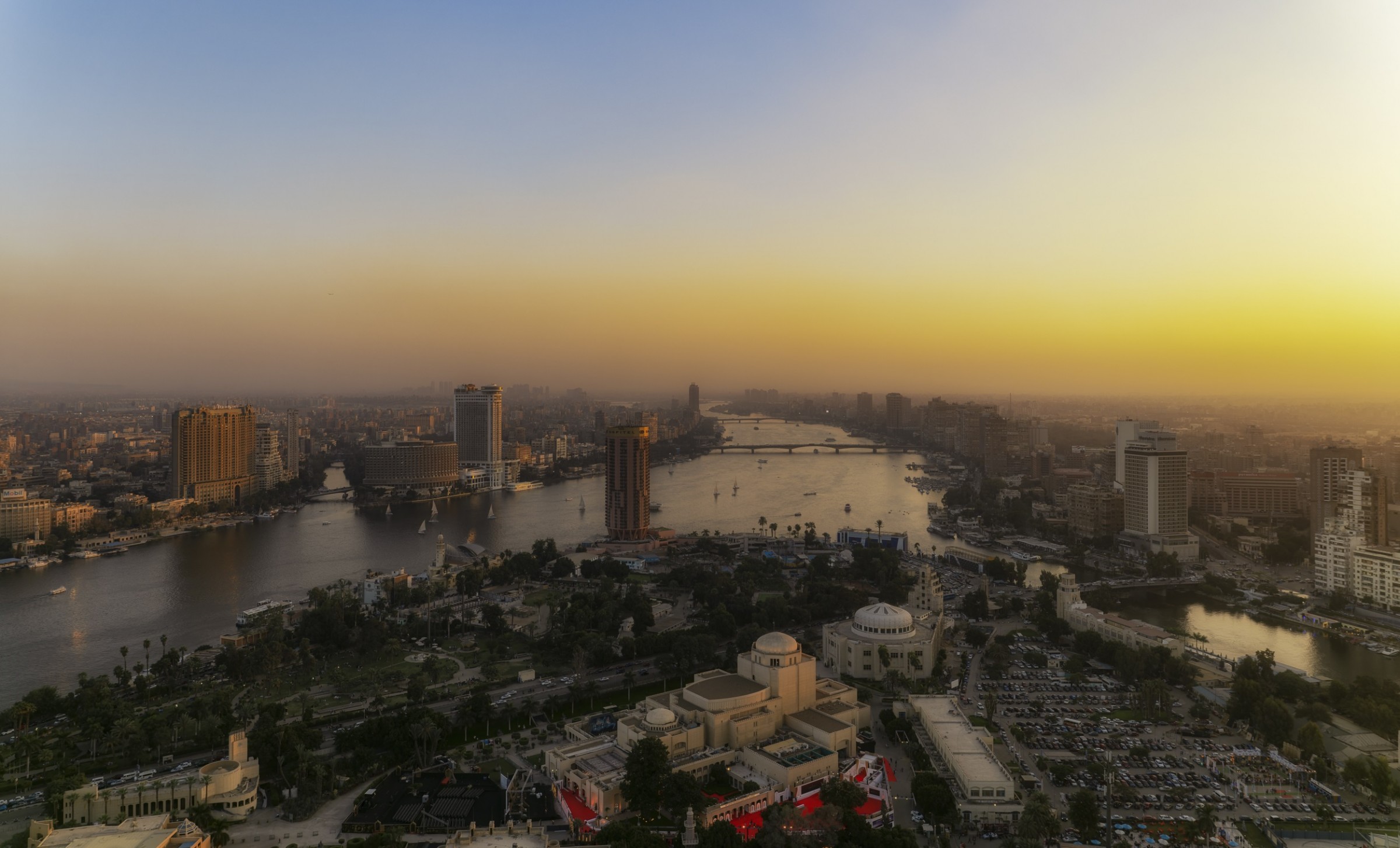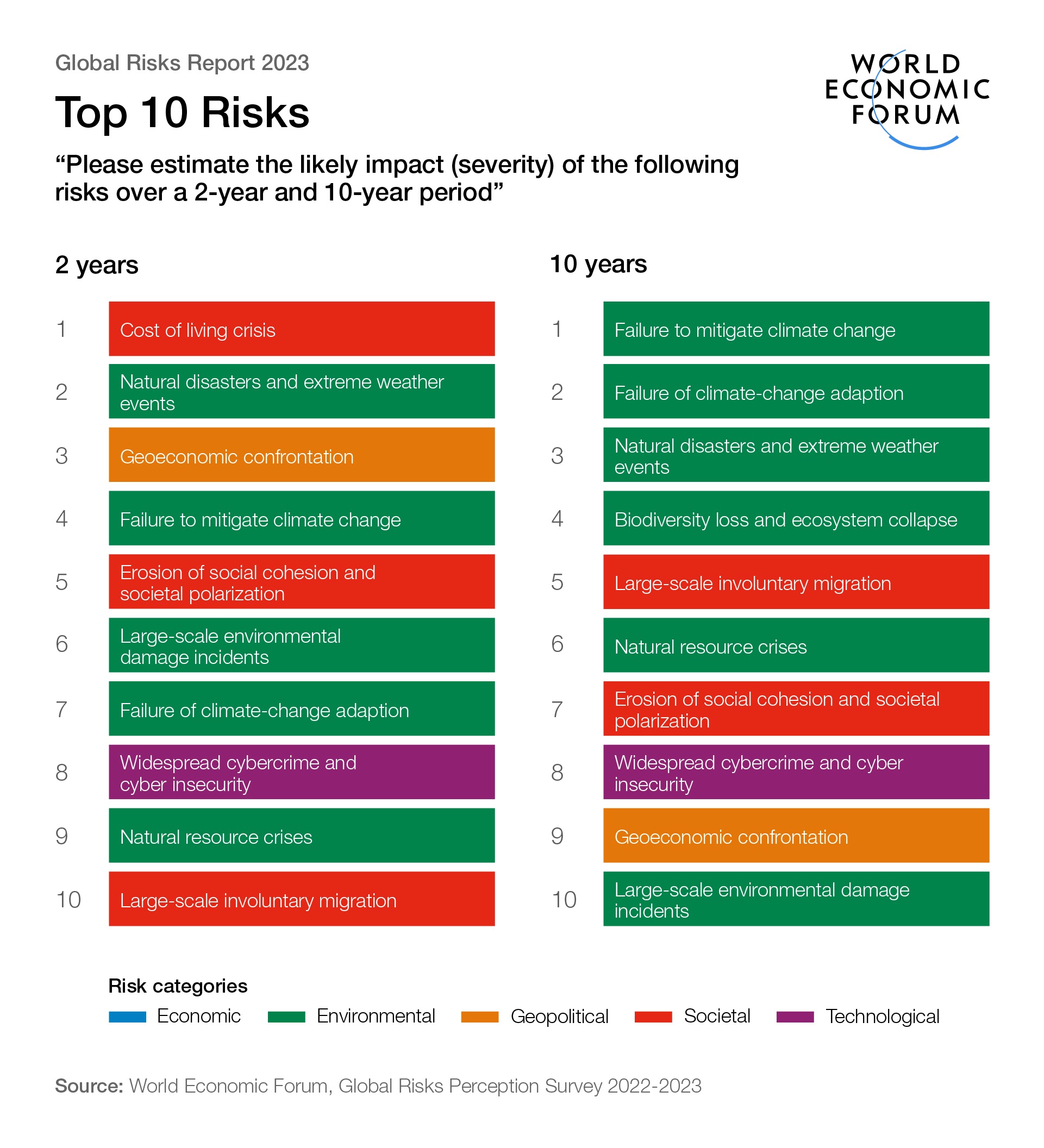Ahead of a high-profile UN conference, political forecasters issue water warnings.

The Nile, cutting here through Cairo, is the heart of Egypt. Photo © J. Carl Ganter/Circle of Blue
By Brett Walton, Circle of Blue – January 11, 2023
Water still matters.
Last year was evidence that forgotten threats to global prosperity and safety can re-emerge. Covid flared in China as the country abandoned its isolationist policy, a reminder that the pandemic continues to burn. Russia’s saber-rattling against Ukraine lifted the possibility of a major nuclear conflict to levels not seen since the cold war.
A fevered planet, meanwhile, continued to make its own noise.
A third of Pakistan was submerged in late summer after horrendous monsoon floods. Drying rivers from Europe to North America impeded commercial traffic along the Rhine and Mississippi. Parts of Somalia are on the verge of famine. And thousands of drinking water wells went dry in California, even as the state today is being pummeled by winter storms.
The World Economic Forum acknowledged once again that ecological shocks such as these reverberate mightily in politics and society. Environmental risks are prominent in the forum’s latest annual report on the world’s biggest challenges. The shockwaves, it says, are spreading farther.
“Compounding crises are widening their impact across societies, hitting the livelihoods of a far broader section of the population, and destabilizing more economies in the world, than traditionally vulnerable communities and fragile states,” the report says.
For risks expected to occur in the next two years, five of the top nine are environmental.
In the longer term, the forecasters expect the environment to emerge as the pivot point. Five of the top six risks over the next decade fit that category: failure to reduce greenhouse gas emissions or adapt to a warming climate; extreme weather; biodiversity and ecosystem collapse; and, in general terms, “natural resource crises.” The other risk – mass involuntary migration – has its roots not only in political upheaval but also in water and climate calamities.
The report warns of a “polycrisis” scenario in which multiple geopolitical and socioeconomic conflicts spiral from an imbalance between supply and demand for natural resources. It also foresees heightened political, social, and economic instability in the next two years as countries absorb the shocks from pandemic and war.
The rankings should not be a surprise. Respondents to the World Economic Forum survey that informs the risk report have consistently affirmed the importance of water and the environment. In the 2015 report, water crises were ranked as the risk having the most impact.
The World Economic Forum has company in this regard. Eurasia Group, a political risk consultancy, recently published its risk watch-list for 2023. It ranks water stress tenth, arguing that governments are treating water scarcity as a “temporary crisis” and not the systemic threat that it is.
The acknowledgements from pundits are a prelude to a year where water will be in the international spotlight.
On March 22 to 24, the United Nations will host a water conference for the first time in a half century. The intent is to assess the world’s progress toward global goals for water, sanitation, hygiene, and sustainable water management.
Governments and businesses can reverse course from the World Economic Forum’s polycrisis scenario, investing in resilient infrastructure and communities while also adopting more environmentally sensible policies. Eurasia Group is not confident that will happen this year. But with mounting evidence of the potential damage, there is no better time to start.

Brett writes about agriculture, energy, infrastructure, and the politics and economics of water in the United States. He also writes the Federal Water Tap, Circle of Blue’s weekly digest of U.S. government water news. He is the winner of two Society of Environmental Journalists reporting awards, one of the top honors in American environmental journalism: first place for explanatory reporting for a series on septic system pollution in the United States(2016) and third place for beat reporting in a small market (2014). He received the Sierra Club’s Distinguished Service Award in 2018. Brett lives in Seattle, where he hikes the mountains and bakes pies. Contact Brett Walton




